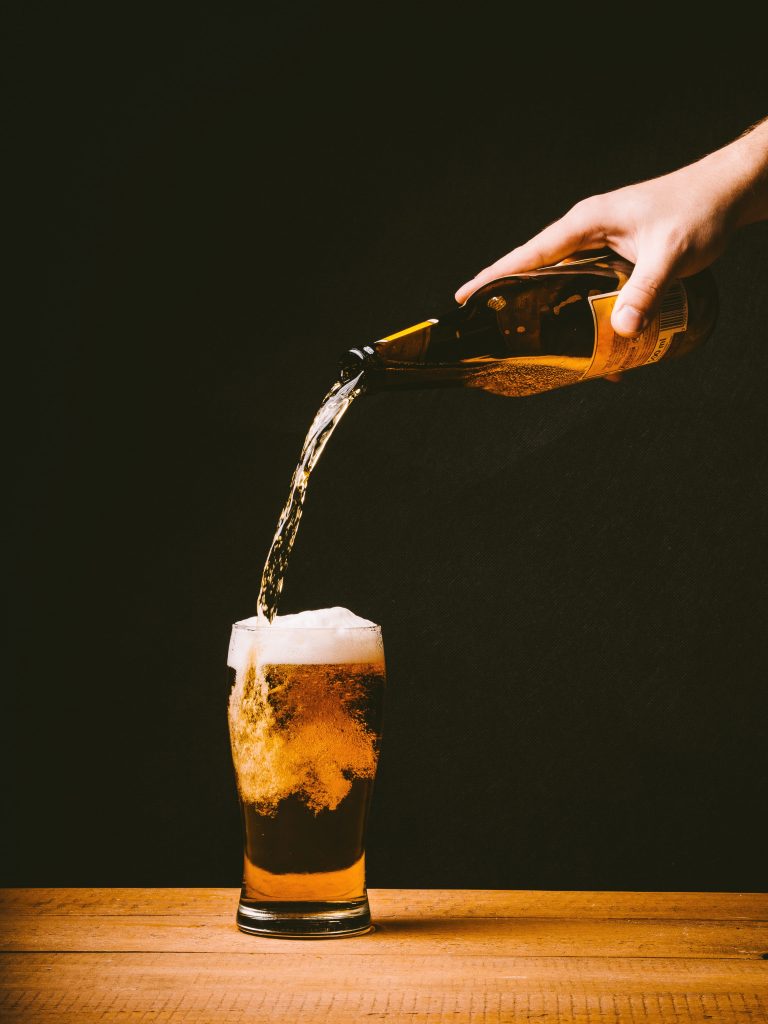We all know that college can be a breeding ground for partying. Many parents may worry that their kids in college might drink too much and develop an addiction, yet many don’t know that young adults are also at risk for developing an eating disorder. Unfortunately the two can come together to form a variety of self-destructive behaviors that the media has labeled as “drunkorexia.”
What are the symptoms?
The flippant nickname created by the press doesn’t do justice to the complexity and seriousness of these behaviors. The combination of alcohol abuse and self-starvation can have devastating consequences on someone’s mental and physical health. There are three unique behaviors that have been identified under “drunkorexia”:
- Restricting food to get drunk faster—When there is less food in the stomach, the alcohol makes its way into the bloodstream much faster, causing the drunk feeling to come on quicker and hit much harder. This behavior is becoming increasingly popular, especially with males.
- Restricting food and exercising excessively to make up for calories consumed while drinking—The pressures to be thin and party with friends can intersect when college students feel guilty for consuming empty calories from drinking. Disordered eating behavior can emerge as someone tries to make up for the calories consumed from alcohol by eating less or exercising intensely.
- Using alcohol to induce vomiting after binge eating—This behavior might be a way to hide an underlying eating disorder such as bulimia. If a student is inducing vomiting from drinking heavily, she may be able to avoid suspicion by chalking the behavior up to having too much to drink.
According to a study from NBC News up to 80% of college students engage in one of these three behaviors and the numbers are on the rise. All three of these behaviors can lead to malnutrition which makes the consequences of drinking much more dangerous. The effects of alcohol are more toxic to a malnourished person causing the chances of blackouts, alcohol poisoning, and violent behavior to increase. Stereotypes of eating disorders in the media usually show a stick-thin woman obsessing over pounds and inches, not someone who also might be going out partying with her friends. That stereotype doesn’t account for the fact that half of those with an eating disorder also have a substance abuse problem as well as the rising numbers of males being diagnosed with eating disorders in the past decade.
Putting any substance use aside, eating disorders are serious illnesses with some of the highest mortality rates of any mental illness. For more information on eating disorders visit my previous blog post, 8 Eating Disorder Myths. If you or someone you know is experiencing an eating disorder, please contact one of our Resource Specialists for individualized mental health resources.
What is causing it?
There is quite The Chicken or The Egg dilemma when it comes to “drunkorexia.” Is the drinking triggering eating disordered behavior or did the eating disorder lead to substance abuse? Well, it seems to be a combination of both. Young adulthood is when mental health disorders and substance abuse issues are mostly likely going to begin to appear. Those in college have more access to alcohol than when they were younger so it may not be easy to predict how certain people will respond to that substance if they have not been exposed to it. The stress of college could also contribute to substance use and eating disorders. Partying is a known way of letting off steam when students feel the papers and exams piling up. With eating disorders, not only does general stress worsen the symptoms but pressure to avoid the freshman fifteen can contribute as well. Away from home, college students have complete control over meals. Skipped meals or binging and purging might go undetected since the student’s family isn’t around to notice these behaviors. All this information might seem frightening or overwhelming but that doesn’t mean there isn’t hope. Early detection and family support are two very important ways to help those who may be at risk for eating disorders and substance abuse.
What can you do?
- Check-in on a regular basis—It’s perfectly normal for young adults to want space from their parents but that doesn’t mean parents should never check-in. Try calling or texting at various different times of day. Do you notice that your son answers his phone at 1 pm groggy and complaining of a headache? Does your daughter rarely respond to you because she is either out late with friends or up first thing in the morning exercising for hours in the gym?
- Keep an eye out—When your adult children come home on break from college, make sure to take note of any behavior changes. Is your son suddenly missing meals or binging on loads of food? Is your daughter going out with her friends almost every night and returning home visibly drunk?
- Talk to them—At this stage in their life, your son or daughter will be very sensitive to being treated like a child. Don’t outright accuse them of anything or make choices for them without their knowledge. If you have some suspicions that your adult children are drinking too much and/or eating too little, talk to them about it. There is no harm in expressing your concern in a calm, non-judgmental way. Their answer to your questions might give you insight into what is going on with them.
- Talk to a professional if you’re concerned—Eating disorders and substance abuse are not phases to simply wait out. It may be normal for eating routines to change once your son or daughter goes to college or for him or her to drink with friends on occasion but you know in your gut when there is a problem. Trust your intuition to know when something is wrong. Don’t hesitate to contact a mental health or substance abuse professional for help.
If you or a loved one is in need of mental health resources, please contact one of our Resource Specialists.
Recommended for You
- Living Well with an Eating Disorder - July 18, 2017
- 3 Apps to Calm You Down - June 20, 2017
- Living Well with Borderline Personality Disorder - June 13, 2017






I have frequently heard of young adults who choose not to eat because they do not want to lose their “buzz”.
I did not know it could lead to an eating disorder, but now it definitely makes sense thinking about it
This is a scary trend. I had a friend go to the emergency room and have his stomach pumped because of alcohol poisoning. It is dangerous to drink on empty stomachs and in high amounts. There are resources you can find if you need help.